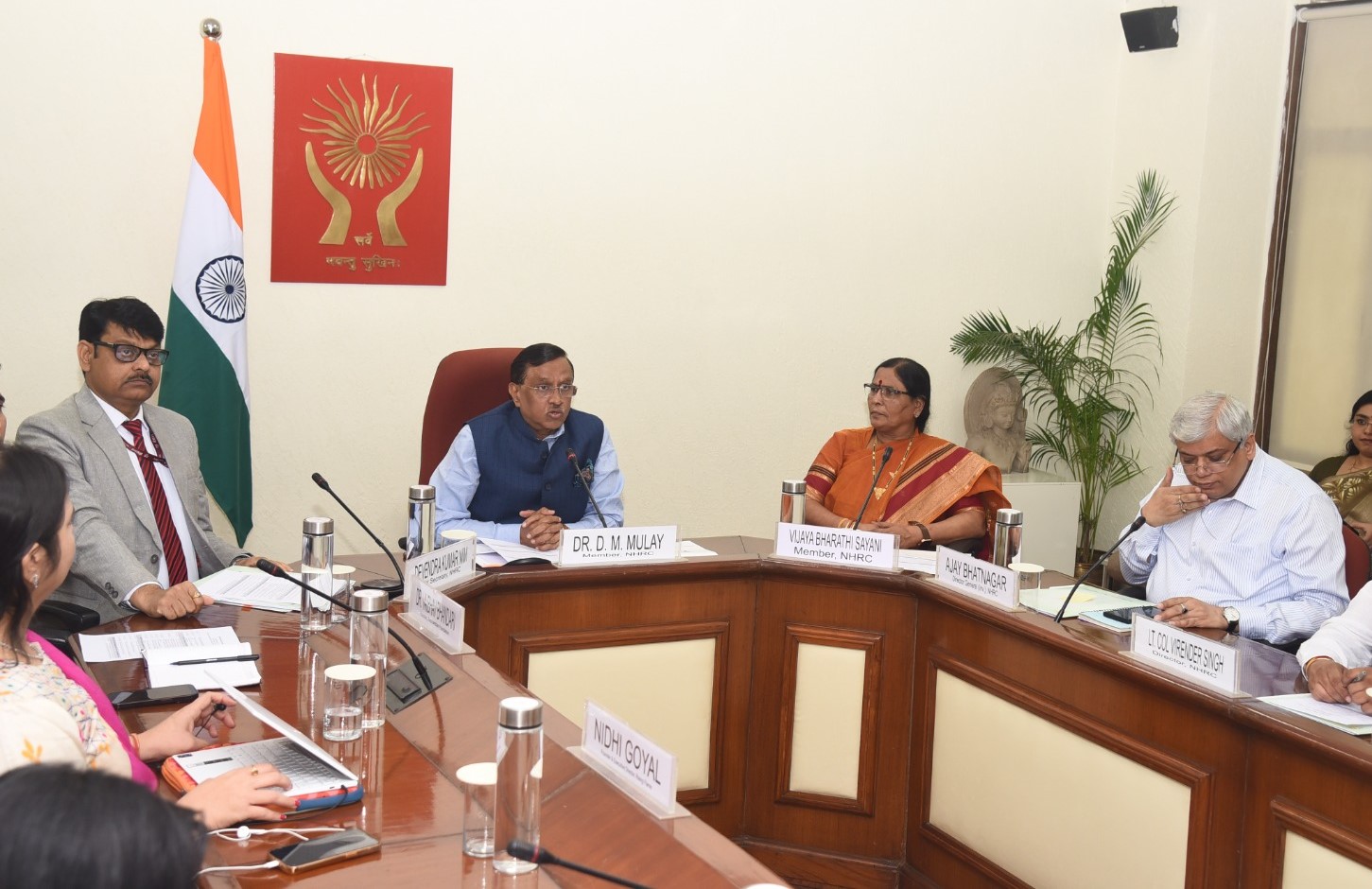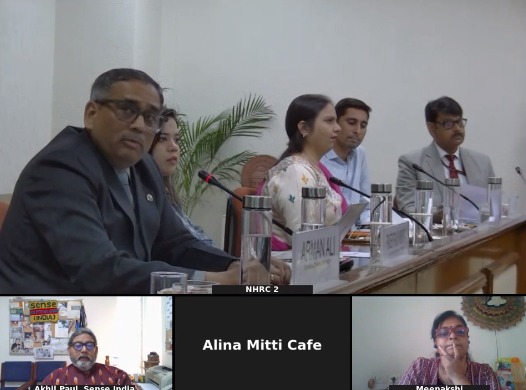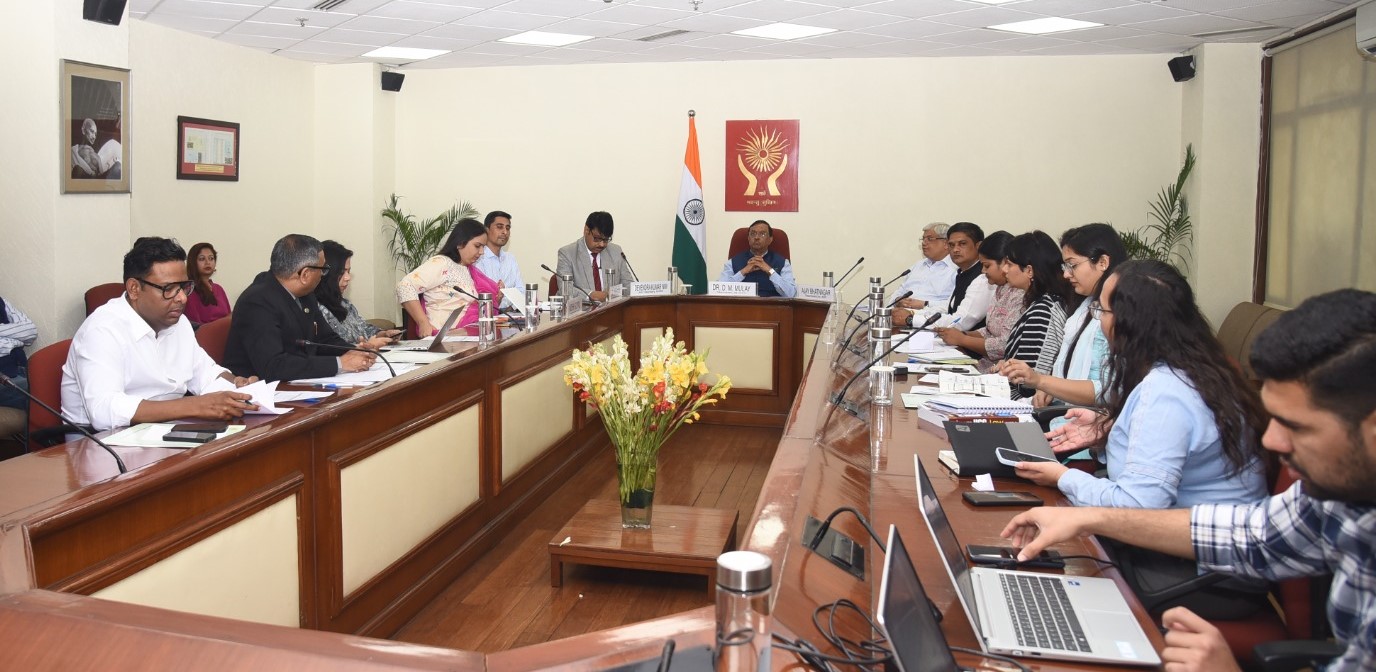NHRC core group on Persons with Disabilities discusses skill development and employability avenues in India
Press release
National Human Rights Commission
New Delhi, 22nd March, 2024
NHRC core group on Persons with Disabilities discusses skill development and employability avenues in India
Sharing of inspiring case studies towards ensuring employment to the PwDs emphasized for replication at a larger scale
In addition to the monitoring of implementation of RPwDs Act SOP needed at a central level to ensure the benefits of the Act reached the grass-root level beneficiaries too
The National Human Rights Commission (NHRC), India organized its core group meeting on disabilities with a focus on mapping inclusivity from the lens of skill development and employability avenues for the persons with disabilities in India. The meeting in hybrid mode was chaired by the NHRC, India Member, Dr Dnyaneshwar M. Mulay in the presence of Member, Smt Vijaya Bharathi Sayani, Joint Secretary, Shri Devendra Kumar Nim, core group members, representatives of the Department of Empowerment of Persons with Disabilities, Ministry of Social Justice and Empowerment, civil society, NGOs and other senior officers of the Commission.

Dr Mulay said that the entrepreneurial ventures providing inspiring case studies towards the employment of the persons with disabilities need to be shared so that there model could be emulated at a larger scale. He said that concerted efforts are required to be made in identifying and filling the gaps in the implementation of the existing laws and policies related to the welfare of the persons with disabilities (PwDs). For this a collaborative approach is required among all stakeholders.
Dr Mulay also said that periodic auditing of all the public facilities including government offices, hospitals, schools from the point view of ensuring convenient access to PwDs is one among various issues required. The PwDs should be given incentives, health and medical services and there should be an end to bullying and stigma at all levels. Awareness about various services meant for PwDs need to be spread .

The discussions were divided into three sessions including (i) Addressing Gaps in Inclusive Education (ii) Navigating Implementation Blocks in Employment of PwDs and (iii) Way Forward for Building an Inclusive Nation with an Empathetic Approach.
Some of the suggestions, among others, were as follows:
• Awareness not just at an empathetic level, but also at a policy and advocacy level needs to be increased.
• Monitor non-compliance of measures given in the Rights of Persons with Disabilities (RPwD) Act for the welfare of PwDs;
• Create an SOP at a central level to ensure the benefits of the RPwD Act reach the grass-root level beneficiaries too;
• Review the current housing and building codes to implement disability friendly infrastructure:
• Address deficiencies in accessibility guidelines and implementation thereof;
• Work on fostering an empathetic environment so as to alleviate the social stigma attached with disability;
• Increase the percentage of benchmark disability to make it a broader spectrum;
• Increase budget allocation for educational institutions in order to promote and incorporate a disability friendly curriculum and infrastructure;
• Create more specific and accessible courses that would aid skill development and employability opportunities for PwDs;
• Have regular need-based assessments and impact assessments, ensuring stricter compliance with UNCRPD guidelines;
• Encourage entrepreneurial support and strategic private sector partnerships would truly help in achieving the goal of economic independence and dignity of PwDs

The meeting was also attended by the representatives from various stakeholder groups including organizations like Centre for Promotion of Social Justice, Sense International India, NCPEDP, Rising Flame, Nipman Foundation; entrepreneurial ventures like TERASINEE, MITTI Café and academicians from University of Delhi. A fresh perspective was one presented by the business model of the Mitti Café and Terasinne, which focused on the advantages of providing the right entrepreneurial platforms and avenues for PwD, in order to truly realize their potential and focus more on their ‘ability’ than ‘disability’. Mitti Café is the first privately owned café presently operating in the premises of Supreme Court of India and is going to operate in Rashtrapati Bhawan.
The Commission will further deliberate upon various suggestions regarding the welfare of the Persons with Disabilities including skill development and employability for making recommendations to the government.
*****







 राष्ट्रीय मानव अधिकार आयोग, भारत
राष्ट्रीय मानव अधिकार आयोग, भारत

